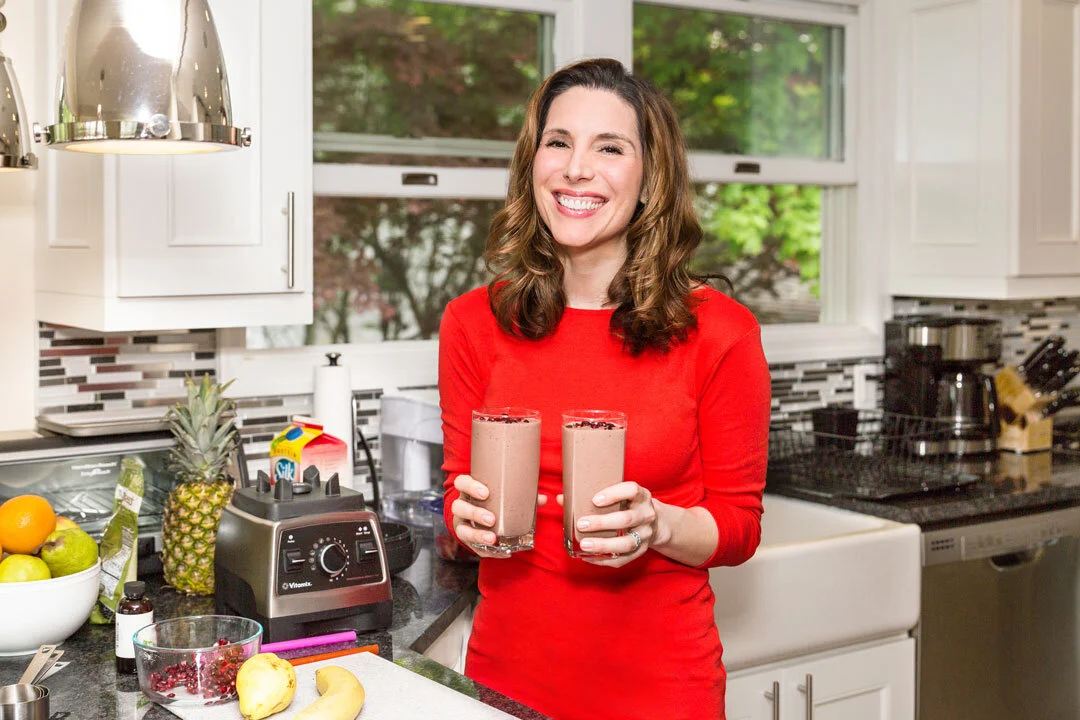My breastfeeding journey is now long behind me, but when I was deep in the weeds of feeding my three girls—all born within three and a half years of each other—the challenges I experienced shaped much of my early motherhood.
Birthing my first daughter ended in an unplanned, emergency c-section after 72 hours of intense labor. By the time she finally arrived, my body was exhausted, and as the epidural wore off, I was stunned by the pain—not just from the incision, but also from referred shoulder pain caused by gas trapped in my abdominal cavity. Sitting up to breastfeed her for the first time felt impossible.
To complicate matters further, we quickly developed intractable thrush, a yeast infection that can affect both the inside of the baby’s mouth and the mother’s nipples and breasts.
Nursing sessions felt like knives slicing through my breasts—during and long after each feed. When my milk let down, the pain was intense. My nipples were deeply sensitive and constantly sore.

Breastfeeding seemed to come so naturally to my new mom friends. I, on the other hand, was constantly seeking help, trying every intervention—from antifungal medications and probiotics to pumping exclusively—but nothing worked. And my baby wasn’t gaining weight. Despite feeding on demand and pumping in between, I felt ashamed that my body wasn’t giving her what she needed. In hindsight, I wonder if the pain I associated with breastfeeding was contributing to my low milk supply.
The infection finally resolved when she was about six months old and eating solids. Breastfeeding got easier. But when my second daughter arrived prematurely, and we developed thrush again almost immediately, I was devastated.
After three to four months of yet again dealing with specialists, creams, lotions, medications, fear of low milk supply, and crippling breast pain, I decided to incorporate infant formula into her feeding regimen to try and get some relief.
Looking back, it’s astounding how much comfort that one bottle a day gave me—relief from pain, a chance to heal, and a break from the fear that I wasn’t providing enough for my daughter, who thrived during combo feeding.
So when my third baby and I developed thrush again, I didn’t wait as long to supplement with formula.
As a pediatric dietitian specializing in infant feeding, my breastfeeding and combo-feeding experiences have deeply shaped my practice. We know that breast milk is the gold standard of nutrition for babies, but breastfeeding and pumping can be incredibly hard—for reasons ranging from physical pain and exhaustion to work demands, dietary restrictions, clogged ducts, postpartum depression, and more. Some women also don’t enjoy breastfeeding and choose not to for many valid reasons.. And some mothers aren’t able to breastfeed, like those who become parents through adoption.
Solutions and support for these challenges aren’t always available or discussed. Many mothers feel judged or ashamed for needing help with something that’s often viewed as “natural” and intuitive. When breastfeeding doesn’t go well, the assumption is you’re not doing it “right,” which can damage confidence and self-esteem. Without stronger systems of support, many women give up.
According to the CDC’s latest Breastfeeding Report Card, while over 80 percent of babies start out receiving some breast milk, less than a quarter are exclusively breastfed by six months.
Professionally and personally, I’ve seen how supporting a mother’s mental health directly supports her baby’s wellbeing. When moms are emotionally drained, physically in pain, and burdened by guilt, they may disconnect from their babies and themselves. In my case, when I began supplementing with formula, I felt more like myself again—more rested, more present, and more capable.
Research backs this up. One prospective observational study found that about 70% of new mothers experience breastfeeding difficulties. Another prospective cohort study found that a high burden of these feeding difficulties is linked with poor maternal mood at eight weeks postpartum. And maternal depression and anxiety are linked to adverse outcomes in infant development, including feeding difficulties, impaired bonding, and sleep issues.
When we focus solely on exclusive breastfeeding without factoring in the mother’s mental and emotional health, we risk compromising the very benefits we aim to provide.
Infant formula can be a powerful tool—not just nutritionally, but emotionally. Babies can still benefit from human milk through combo feeding, and for some mothers, that small shift can be profoundly healing. In fact, studies suggest that when women stop breastfeeding because of issues like pain, low milk supply, or infections, they face a higher risk of postpartum depression. If combo feeding helps extend the breastfeeding journey—or simply supports a mother’s mental health along the way—it becomes a form of protection, not a compromise.
Another unexpected gift of combo feeding I experienced was the ability to share feeding responsibilities. That one bottle a day gave me time to rest, shower, or just breathe—and allowed others to bond with the baby in meaningful ways. It shifted us from survival mode to a more sustainable family rhythm. For parents juggling work, travel, or medical complexities, infant formula offers underrated benefits like flexibility and peace of mind.
Looking back, these experiences didn’t just shape me as a parent—they reshaped my professional lens. They deepened my empathy and broadened my understanding of what truly supports a thriving baby: whole-child and whole-family wellbeing.
The truth is, feeding doesn’t need to be perfect to be profoundly nourishing. A thriving baby is not just one who grows well, but one who is held by a caregiver who feels supported, seen, and emotionally well. And if infant formula helps caregivers feel that way, I’m grateful for it.
Happily, for parents today who choose to use formula, there are more options than ever—including gentle, non–cow’s milk alternatives.. One of them is Kabrita—the first and only European-made goat milk-based infant formula to meet all FDA requirements for long-term use. It’s naturally closer in protein composition to that of human milk and gentler on digestion as well.
Whether a baby is breastfed, bottle-fed, combo-fed, or tube-fed, love and nourishment are what matter most. That perspective—born out of pain, growth, and healing—has made me a better clinician and a more compassionate advocate for maternal mental health.
Author
-

Malina Malkani, MS, RDN, CDN is the pediatric dietitian, best-selling author, speaker, and single mom of three behind the social media handle, @healthy.mom.healthy.kids. A top nutrition influencer dedicated to educating her combined audience of over 150K, she is a Kabrita Medical Advisor, the owner of a New York-based private nutrition practice, and the author of two infant feeding books: Simple and Safe Baby Led-Weaning and Safe & Simple Food Allergy Prevention. When not working, Malina can usually be found drinking tea, walking her Pomeranian, or endlessly shuttling her kids around town.
View all posts




